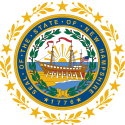Rule 6.3. Membership in Legal Services Organization
A lawyer may serve as a director, officer or member of a legal services organization, apart from the law firm in which the lawyer practices, notwithstanding that the organization serves persons having interests adverse to a client of the lawyer. The lawyer shall not knowingly participate in a decision or action of the organization:
(a) if participating in the decision or action would be incompatible with the lawyer's obligations to a client under Rule 1.7; or



